Latest episode
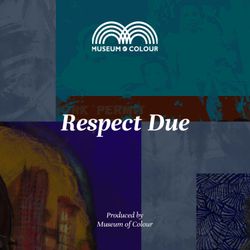
11. Bonus Episode: Unheard Clips
25:00||Season 1, Ep. 11In this episode we share some of our favourite unheard clips from the brilliant interviews we recorded in 2021 for Respect Due. Listen in to hear the actor, writer and activist Lucy Sheen; trailblazing cultural leader Ranjit Sondhi; writer and activist Stella Dadzie; actor and comedian Judith Jacob; DJ and broadcaster DJ Ritu; and leadership expert Hilary Carty. Full interviews with all the guests included in this episode can be found in the podcast feed. This episode is presented by Samenua Sesher and produced by Stella Sabin. It is a production for the Museum of Colour www.museumofcolour.org.uk The music in this series is by Soweto Kinch.Respect Due has been funded by the National Lottery Heritage Fund and the Paul Hamlyn Foundation. Museum of Colour is supported by People’s Palace Projects, in the Queen Mary University of London Drama Department.
More episodes
View all episodes
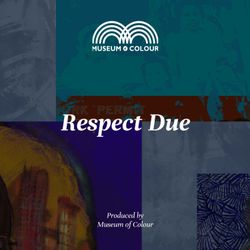
10. Lucy Sheen
27:25||Season 1, Ep. 10Samenua Sesher speaks with the incomparable Lucy Sheen. Lucy is an actor in film, TV and theatre. Her first major professional acting role was the lead in the groundbreaking British feature film Ping Pong (1986), directed by Po-Chih Leong. She has performed in some of the UK’s most prestigious theatres: the National, the RSC and the Bristol Old Vic, to name but a few. She is also a writer and activist, campaigning for better representation of British East and South East Asian people in the creative industries. Lucy was born in Hong Kong but was brought to the UK in the 1960s as part of the ‘Hong Kong Project’ - the first official programme of transracial adoption. She continues to advocate for adoptee rights today. Lucy Sheen was nominated by BESEA.N https://www.besean.co.uk/. BESEA.N is a grassroots movement, created to shine a light on Britain's East and South East Asians. This episode is presented by Samenua Sesher and produced by Stella Sabin. It is a production for the Museum of Colour www.museumofcolour.org.uk The music in this series is by Soweto Kinch.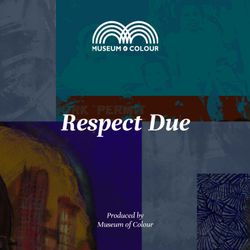
9. Hallam Ifill
26:20||Season 1, Ep. 9In this episode, we will be discussing the incredible contributions of Hallam Ifill, the leader of Rainbow Steel Band, one of the longest-running steel pan bands in the country, based in Hallam’s home town of Bath. Sadly, Hallam couldn’t be with us but we are delighted to be joined by Pauline Swaby-Wallace, manager of Bath Ethnic Minority Senior Citizen Association (BEMSCA), and Shawn Sobers, associate Professor of Cultural Interdisciplinary Practice at the University of the West of England and trustee of Fairfield House, to discuss Hallam’s huge impact on the community in Bath. Hallam Ifill was nominated by the trustees of Fairfield House. Pauline Swaby writes: ‘Hallam is the oldest black person we know to have come to Bath in the early 1950s. He and his wife Ursuline built a community that many call home. He is the founding member of Rainbow Steel Band, the oldest in the UK, which is recognised worldwide.’Fairfield House was the residence of Haile Selassie I, Emperor of Ethiopia, during the five years he spent in exile. He donated it to the city of Bath in 1958 as a residence for the elderly in gratitude for the warm welcome he had received.This episode is presented by Samenua Sesher and produced by Stella Sabin. It is a production for the Museum of Colour www.museumofcolour.org.uk The music in this series is by Soweto Kinch.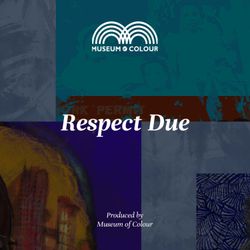
8. Ranjit Sondhi
24:15||Season 1, Ep. 8Samenua Sesher speaks with cultural leader Ranjit Sondhi. Ranjit’s determined enthusiasm has taken him from a commune in Handsworth to the hallowed halls of some of the UK’s most powerful institutions. At every stage of that journey, he has continued to fight for the economically and politically disenfranchised. He is the founder of the Handsworth Asian Resource Centre and was a BBC governor from 1998-2006. Ranjit is a passionate supporter of the arts and an advocate for the visually impaired. Ranjit was nominated by South Asian arts organisation Sampad, based at the Midlands Art Centre. They write: ‘Ranjit continues to be a leading light of wisdom, deep compassion and intelligence that guides many individuals and organisations towards creating a more ethical, respectful and collaborative society. He untiringly continues to stand up for human rights and the rights of ordinary working people across all communities. We are proud and privileged to have him as a leader of our own organisation Sampad, South Asian Arts and Heritage. We will look forward to seeing him as a valued inclusion in the Museum of Colour exhibition.’This episode is presented by Samenua Sesher and produced by Stella Sabin. It is a production for the Museum of Colour www.museumofcolour.org.uk The music in this series is by Soweto Kinch.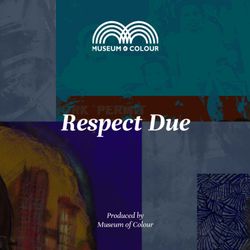
7. Stella Dadzie
28:36||Season 1, Ep. 7Samenua Sesher speaks with the trailblazing changemaker Stella Dadzie. In the late 1970s Stella co-founded the Organisation of Women of African and Asian Descent, a central plank of the UK Civil Rights movement. She is the co-author of the award-winning book The Heart of the Race: Black Women’s Lives in Britain, which was republished by Verso Books in 2018 as a feminist classic. Her most recent work, A Kick in the Belly: Women, Slavery and Resistance, was published in 2020. Stella Dadzie was nominated by the Friends of the Huntley Archives at the London Metropolitan Archives (FHALMA). The Huntley Archives contain the collections of the pioneering publishers Eric and Jessica Huntley. They said: ‘FHALMA is proud to have nominated activist, educationalist, internationally-acclaimed writer and historian Stella Dadzie. Her deep level of influence has manifested itself across forty years as a constant, compelling radical voice, championing progressive black feminist perspectives – especially critical at a time when the prevailing climate supported aggressive racist behaviours and disenfranchisement of Black British communities.’A quick warning that this episode contains descriptions of slavery and violence against women which may be upsetting for some listeners. This episode is presented by Samenua Sesher and produced by Stella Sabin. It is a production for the Museum of Colour www.museumofcolour.org.uk The music in this series is by Soweto Kinch.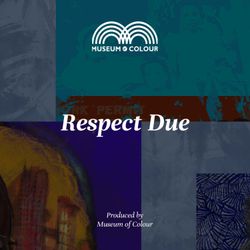
6. Maureen Roberts
24:01||Season 1, Ep. 6Samenua Sesher speaks with Maureen Roberts: author, teacher and archivist. With a background in creative writing and education, Maureen began her career as an archivist with the Huntley Archives (https://fhalma.org/) at the London Metropolitan Archives (LMA): the collection of the legendary publishers Jessica and Eric Huntley, who founded the radical London-based publishing company Bogle-L’Ouverture Publications in 1969. She stayed on at the LMA as Learning Officer, working to engage the public with heritage and increase the accessibility of the collections. Maureen was nominated by the Black British Museum Project, a community interest company working to create a physical Black British museum for future generations. They write: ‘Exploring heritage spaces since primary school, Maureen Roberts has spent decades encouraging people to tell their stories. Passionate about the histories of Pan African communities and Black Britons in her previous role as Senior Engagement and Learning Officer for London Metropolitan Archives (LMA), Maureen is one of our respected champions for engaging communities with heritage.’This episode is presented by Samenua Sesher and produced by Stella Sabin. It is a production for the Museum of Colour www.museumofcolour.org.uk The music in this series is by Soweto Kinch.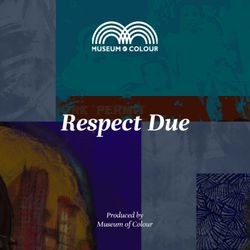
5. Hilary Carty
25:33||Season 1, Ep. 5Samenua Sesher speaks with Hilary Carty, director of the Clore Leadership Programme: an organisation that aims to develop and strengthen leadership potential across the cultural and creative sectors, offering development programmes for leaders at all stages of their careers. Hilary has been at the forefront of cultural leadership for decades. She began her journey as a leader as director of a small dance company, and had various senior positions with Arts Council England before she was appointed as Director of the Cultural Leadership Programme, a £22 million government fund for investment in ‘excellence in leadership’ within the UK cultural sector Hilary was nominated by Samenua Sesher, director of Museum of Colour. Samenua writes: ‘Hilary has had a long and illustrious career in culture leadership, firstly as a leader herself and now as a supporter of other leaders. She is rare in her ability to be absolutely committed and consistent in a sector of many moving parts. She has refused to be trapped by diversity diversions and brings a searing intelligence to whatever role she holds. Hilary can do big picture and strategy while paying keen attention to every detail. She always wears a number of hats alongside her main jobs and yet she makes time to share wisdom and support informally with many. She is a shining star in a sector that is even parts beautifully inspiring and precarious bear pit. She has always inspired me.’This episode is presented by Samenua Sesher and produced by Stella Sabin. It is a production for the Museum of Colour www.museumofcolour.org.uk The music in this series is by Soweto Kinch.